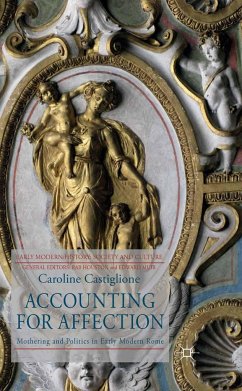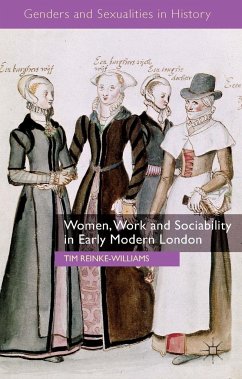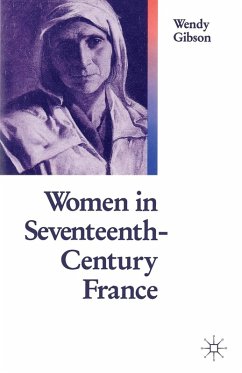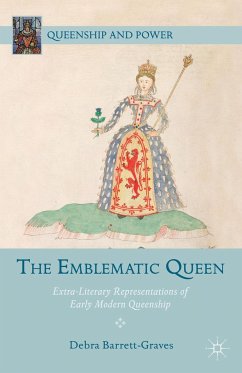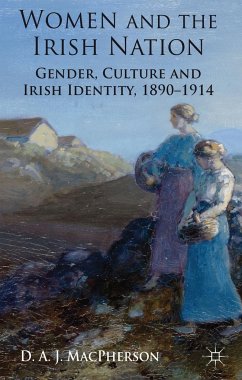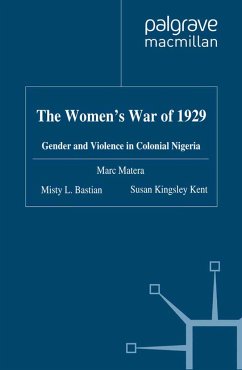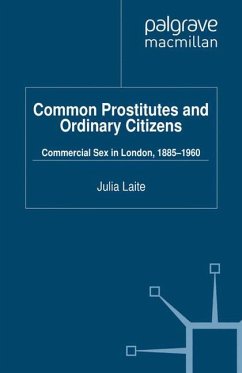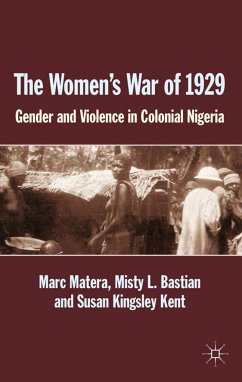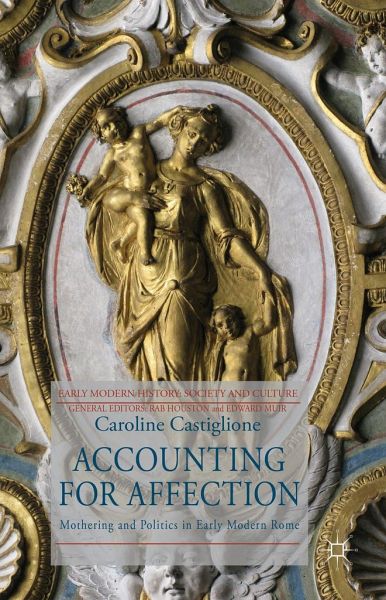
Versandkostenfrei!
Versandfertig in 6-10 Tagen
Weitere Ausgaben:

PAYBACK Punkte
34 °P sammeln!





Accounting for Affection examines the multifaceted nature of early modern motherhood by focusing on the ideas and strategies of Roman aristocratic mothers during familial conflict. Illuminating new approaches to the maternal and the familial employed by such women, it demonstrates how interventions gained increasing favor in early modern Rome.
Caroline Castiglione is Associate Professor of Italian Studies and History at Brown University, USA. She is the author of Patrons and Adversaries: Nobles and Villagers in Italian Politics, 1640-1760 (2005), winner of the Helen and Howard R. Marraro Prize from the Society for Italian Historical Studies in 2006.
Produktdetails
- Early Modern History: Society and Culture
- Verlag: Palgrave Macmillan / Palgrave Macmillan UK / Springer Palgrave Macmillan
- Artikelnr. des Verlages: 978-0-230-20331-0
- 2015 edition
- Seitenzahl: 315
- Erscheinungstermin: 13. März 2015
- Englisch
- Abmessung: 218mm x 142mm x 25mm
- Gewicht: 506g
- ISBN-13: 9780230203310
- ISBN-10: 0230203310
- Artikelnr.: 36270178
Herstellerkennzeichnung
Libri GmbH
Europaallee 1
36244 Bad Hersfeld
gpsr@libri.de
"The principal theme of the book is the determination of elite women in this period to negotiate with their relatives and, if needs be, the law-courts, in support of their rights and those of their children. ... These intertwined stories form part of a grander narrative proposed by Castiglione that contributes to our understanding of the history of emotions. ... all will welcome this study of early modern motherhood based on the testimony of early modern mothers." (M. Laven, English Historical Review, Vol. 133 (560), February, 2018)
"This book traces the triumph of motherly love among the highest elites of seventeenth-century Rome. ... Accounting for Affection will be required reading for historians of the family, the early modern state, and the role of emotions in history. Castiglione has done the field a service, and successfully placed motherhood, and mothers, at the heart of the early modern political imaginary." (P. Renée Baernstein, Journal of Modern History, Vol. 89(1), March, 2017)
"Castiglione is to be commended for her own resourcefulness in assembling a large quantity of first-person accounts of the women's range of interests and enterprises. ... her book is a valuable account of the importance of women in the family dynamics and family politics of the early modern Roman aristocracy." (Stanley Chojnacki, American Historical Review, Vol. 121 (4), October, 2016)
"This book traces the triumph of motherly love among the highest elites of seventeenth-century Rome. ... Accounting for Affection will be required reading for historians of the family, the early modern state, and the role of emotions in history. Castiglione has done the field a service, and successfully placed motherhood, and mothers, at the heart of the early modern political imaginary." (P. Renée Baernstein, Journal of Modern History, Vol. 89(1), March, 2017)
"Castiglione is to be commended for her own resourcefulness in assembling a large quantity of first-person accounts of the women's range of interests and enterprises. ... her book is a valuable account of the importance of women in the family dynamics and family politics of the early modern Roman aristocracy." (Stanley Chojnacki, American Historical Review, Vol. 121 (4), October, 2016)
Für dieses Produkt wurde noch keine Bewertung abgegeben. Wir würden uns sehr freuen, wenn du die erste Bewertung schreibst!
Eine Bewertung schreiben
Eine Bewertung schreiben
Andere Kunden interessierten sich für


